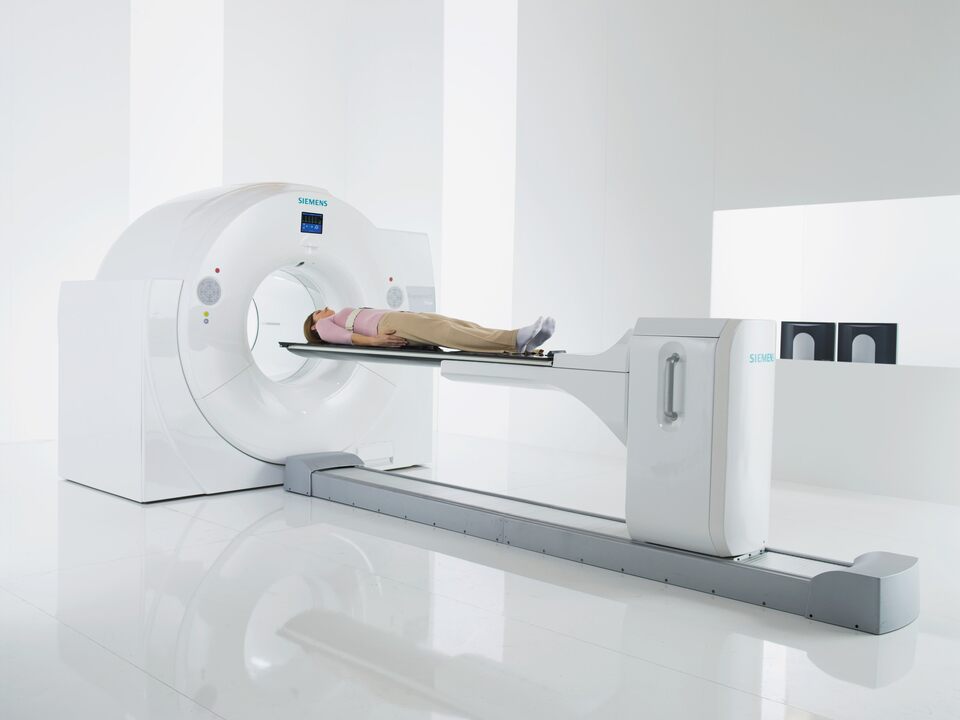I’ve got scanxiety and it’s hitting me hard.

Scanxiety is what happens when you’ve just done a major radiological test – a scan – and you’re waiting for results. In the case at hand, it was my latest PET CT to check if my chronic cancer is still in remission. Worry about the opposite result is what leads to scanxiety.
A PET CT is an overwhelming experience. It seems almost designed to trigger fear. It’s not just the machine, which takes up an entire room (you lie on a moving platform which glides you in and out of the whirring mechanism – it could be fun if the stakes weren’t so high).
There’s also the fact that, in order to do the scan, you have to be injected with a radioactive dye. A special bathroom nearby is designated solely for radioactive pee.
After the dye is in, you’re instructed to sip two full cups of flavored sugar water over the course of 50 minutes. Cancerous tumors, it seems, gobble up the nearest available sugar, which when combined with the radioactive contrast, rushes to any tumors, which subsequently light up under the machine’s watchful eye.
Fear of recurrence is the ugly elephant that refuses to budge from the living room of the anxious mind. While this is a classic hallmark of living with a chronic cancer like mine, it’s relevant to cancers that can be “cured” but where you can never quite let down your mental guard because there’s always a chance, however statistically rare, that it could come back.
Indeed, the American Cancer Society found that a year after being diagnosed, around 2/3 of the people they studied said they were concerned about their disease returning.
That a fear of recurrence is so prevalent shouldn’t be surprising: negative “what if” thoughts appear to be an integral part of the human experience – as unavoidable as the common cold.
“Half the world is on the low positive affective spectrum,” explains Dr. Martin Seligman, former president of the American Psychological Association and the “father” of the positive psychology movement.
Pessimism, in fact, may have been selected during human evolution. “The mentality that said, ‘it’s a beautiful day in San Diego today, I bet it’ll be beautiful tomorrow’ got crushed during the Ice Age,” Seligman explains in his new book The Hope Circuit. So-called “bad weather animals, who were always thinking about the bad stuff that could occur” were more likely to survive.
In that backhanded way, fear of recurrence brings its own advantages when it comes to something like chronic cancer. It can lead one to be more vigilant, not missing or postponing that annual test, and being mindful of changes to the body that should prompt immediate medical attention.
What makes less sense: getting stuck in worry and obsessive rumination. Which is where I am with my post-CT scanxiety.
How do you fight a way of thinking that is hard-wired into humanity since the days when we were painting pictures of wooly mammoths on cave walls?
The Mayo Clinic has a few tips to reduce fear of recurrence.
“You know more now.” Think about how much you didn’t understand when you were first diagnosed, the Mayo Clinic suggests, and compare it to now. That’s certainly been my experience: I’ve been forced by dint of necessity to become an expert in treatment options. When a relapse eventually comes, I won’t be going in as blind as the first time.
“You’ve built relationships.” I have a doctor, I know my way around the hospital, we’ve worked the HMO-approval bureaucracy.
“You’ve done this before.” Yeah, it’s no fun to head back into a period of prolonged fatigue, nausea and pain, and I won’t pretend it was “easy” the first time. But, like running a marathon or climbing a mountain, the end seems closer when you’re no longer a newbie.
If this sounds like yet another reminder of the value of mindfulness, Seligman says that’s not necessarily the goal.
“What distinguishes human beings from all other animals is that we’re creatures of the future,” Seligman says. Indeed, so much of our mental life is concerned with what’s to come, “the notion that we should live more and more in the moment denies what, evolutionarily, we’re really good at.”
I’m not sure that trading in mindfulness to focus on the future is the right call. But either way, there is something to be gained from perceiving reality with eyes wide open: you can help others.
A few months ago, a good friend of mine WhatsApp’d me.
“Can you talk? Like, right now?” he wrote.
I picked up the phone. It turns out my friend had just been diagnosed with the same cancer as me and he was panicking. He’d been reading my columns and wanted advice.
I had plenty to give.
“You won’t die from this, you’ll most likely die with it,” I told him, parroting one of the repeated lines that has been at once helpful and profoundly frustrating when stated by doctors and other lymphoma patients.
But it was the first time he was hearing that aphorism, and he found it comforting. The Mayo Clinic was right: I know more now. I’ve been through this before.
I don’t expect to ever rid myself entirely of scanxiety – nor do I want to. Still, it’s nice to know that this understandable and evolutionarily-justified fear can be channeled into something productive – if not for me, then for those I care about.
I first shared my fear of scans on The Jerusalem Post.

